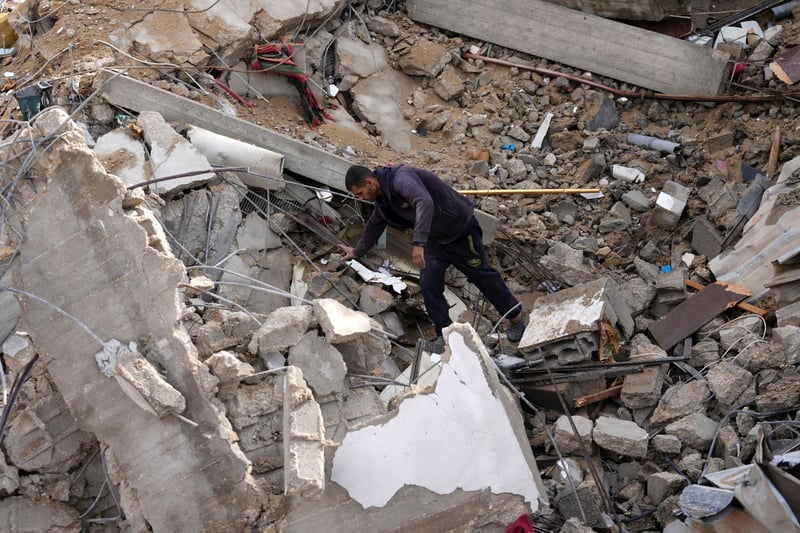THE HAGUE, Netherlands (CN) — Last month, the highest court of the United Nations found itself thrust into the spotlight as thousands tuned in to watch Israel defend itself against an accusation of genocide made by South Africa.
Sometimes referred to as the World Court, the Hague-based International Court of Justice mostly settles disputes between countries. But its 15 judges can be asked to weigh in on all sorts of legal questions, issuing what are known as advisory opinions.
Currently, the court has three pending requests for such opinions — a record number in the court’s nearly 80-year history.
They aren’t small issues, either. Judges have been asked to weigh in on climate change, whether workers have the right to strike and the legality of Israel’s occupation of Palestine.
“Advisory opinions have been interesting for the court to avoid the contentious aspect,” said Solveig Henry, a lawyer who works at the ICJ, in an interview with Courthouse News Service.
In court parlance, “contentious” refers to complaints brought by one country against another.
Like the dictionary definition of the word, these contentious complaints can also be controversial.
By the time a complaint reaches the high court, “the political process has failed,” said Mike Becker, assistant professor of law at Trinity College Dublin who previously worked as a legal advisor for the court. Countries could already be years into an ugly fight that may have even resulted in violence.
Theoretically, advisory opinions allow the international community to sort out legal obligations before a disagreement gets contentious.
Advisory opinions are also not strictly legally binding, which allows countries to investigate their legal obligations in a less risky way, Becker said.
The International Court of Justice isn’t unique in issuing advisory opinions. The European Union’s top court, the European Court of Justice, can be asked to weigh in on matters of EU law.
The Strasbourg-based European Court of Human Rights also has a similar procedure. Another request for an advisory opinion on climate change is pending before a different UN court, the International Tribunal for the Law of the Sea.
Throughout the International Court of Justice’s 79-year history, it’s delivered 24 advisory opinions. That’s an average of one every three years.
Right now, though, the court has a whopping 21 cases on its docket — including three requests for advisory opinions.
Two came from the United Nations General Assembly, with one on Palestine and the other on climate change. The third was made by the International Labour Organization, the UN agency responsible for setting labor standards, which has asked the judges about the right to strike.
This is a unprecendented number of pending requests, and it’s leading to an increased workload for the court. “I’ve been working at the court for 19 years — and 19 years ago, we just had one case at a time,” Henry said. “Now, we are working on a lot of cases at the same time.”
Long road to The Hague
Among the current opinion requests now on the high court’s docket is one from last March, when the General Assembly adopted a resolution asking the court to weigh in on what legal obligations countries have to mitigate climate change.

The initiative was spearheaded by Vanuatu, a small island nation in the South Pacific. “We are taking the world’s biggest problem to the world’s highest court,” Margaretha Wewerinke-Singh, an associate professor of international law at the University of Amsterdam who is also lead counsel for the country, told Courthouse News Service.
The idea of seeking an opinion from the ICJ began in a classroom in 2021 at the University of the South Pacific in Fiji. There, law students became convinced it was the best path to force the global community to curb greenhouse emissions.










